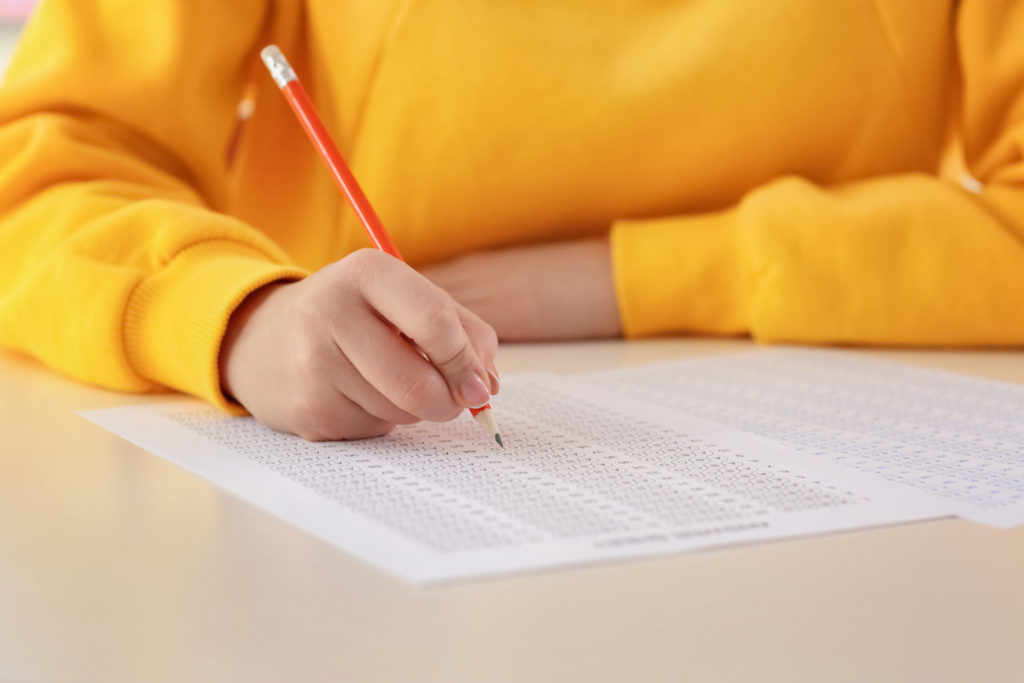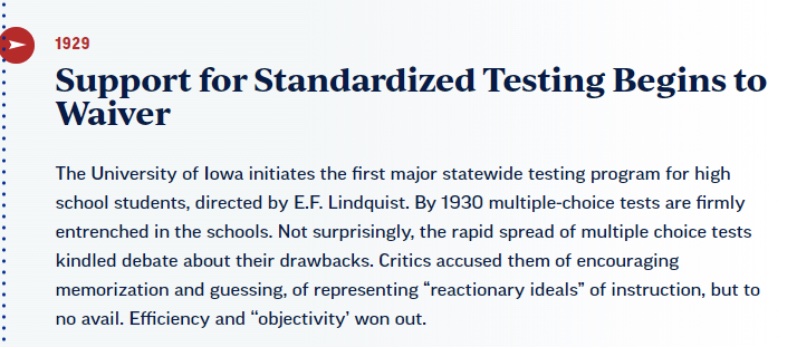Standardized testing must be ditched in favor of ‘performance-based assessment,’ says NEA. Not so fast
Standardized testing is failing students and should be dumped, the National Education Association argues.
“Most of us know that standardized tests are inaccurate, inequitable, and often…

Standardized testing is failing students and should be dumped, the National Education Association argues.
“Most of us know that standardized tests are inaccurate, inequitable, and often ineffective at gauging what students actually know,” writes Cindy Long, a senior writer for NEA News.
In a recent article, the NEA suggests an alternative: “Performance-based Assessment,” (PBA) a system of learning and assessment that lets students demonstrate knowledge through real-world problem-solving, collaboration and critical thinking. Proponents claim it better prepares students for success in later life.
However, the practice falls short of the promise.
First-grade teacher Molly Malinowski of the Winchester School District in Massachusetts is a vocal advocate for PBA, believing it offers students more avenues to show what they know, while giving teachers greater flexibility to tailor their lessons to different learning styles.
From the NEA News article:
“One of Malinowski’s favorite math assessments focuses on addition, using numbers from 0 through 20. She introduces the concept and, with inquiry-based instruction, presents lessons and talks about strategies. As students pose questions or problems, the process ignites their curiosity. At the end of the unit, they have an ‘addition celebration.’”
“The best part is that they get to show their learning in a lot of different ways,” Malinowski says. “For this math standard, they make a video, a poster, a voice recording, a mini-play, or a piece of writing. Students have a voice in how they demonstrate their learning.”
Yet, the description given by Malinowski does PBA no favors. The ultimate aim of education is to impart knowledge that leads to the development of skills. Avoiding the testing of competency will not induce competency. Neither will making “a video, a poster, a voice recording, or a mini-play” demonstrate mastery of the specific content students must learn to advance to more complex material.
In Malinowski’s school, each academic area has developed its own PBA, which it will keep developing, “tweaking and editing” as the school year progresses.
The animating principles behind PBA are summed up by Jack Schneider, co-founder of the Massachusetts Consortium for Innovative Education Assessment (MCIEA).
“The first objective of MCIEA is to measure student learning in a way that relies on teacher-created, classroom-embedded, performance assessments rather than externally created standardized assessments. The second objective is to measure school quality in a way that is more holistic, valid, and democratic than standardized tests.”
The group’s structure ignores test scores, and graduation and absentee rates, instead focusing on multiple measures of student engagement and achievement, as well as school environment.
“Where in [standardized test scores] is student engagement, their sense of belonging, performing arts, or development of civic competencies?” he asks. “There are massive gaps. So many of the current variables are just demographics in disguise.”
PBA is “a more equitable system that doesn’t punish marginalized students,” Schneider explains.
The thing is, organizations such as MCIEA partner with teachers’ unions to redefine success away from demonstrable competency to an amorphous standard that cannot be pinned down.
At bottom, PBA is a response to failing public schools that seeks to lower standards to the point of incomprehensibility, rather than elevating teaching and learning to acceptable levels.
In the NEA’s 2020 “History of Standardized Testing in the United States,” there is an error in one of the headings that ought to embarrass both writer and editor:
 If the National Education Association doesn’t know the difference between “waiver” and “waver,” then what hope remains for America’s children?
If the National Education Association doesn’t know the difference between “waiver” and “waver,” then what hope remains for America’s children?
With PBA, and similarly wrongheaded fads, that hope is dim indeed.



